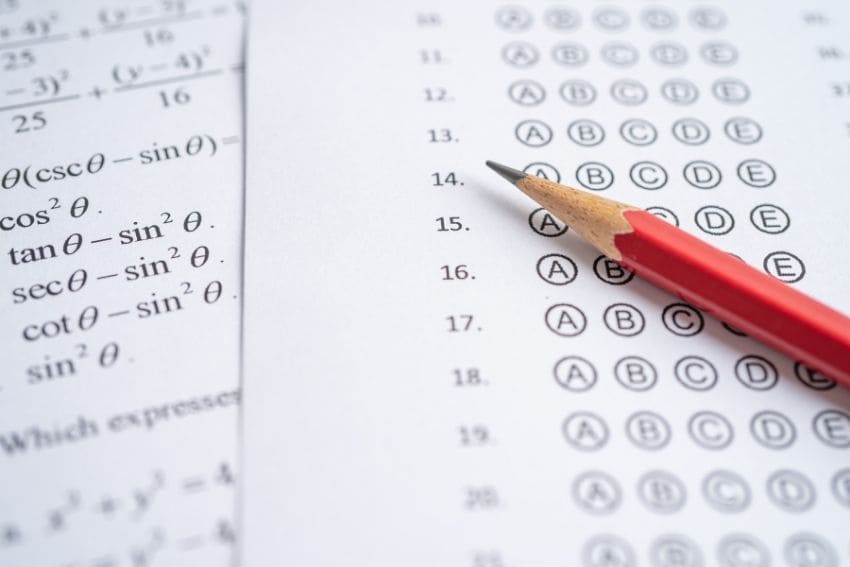- How Does The UK Schools System Work?
- What Are The Stages of Education in the UK School System?
- The UK School System: What Is a Three-tire System?
- Types of Schools in the UK
- What Is The UK School Grading System?
- Exams and Assessments in the UK Education System
- Student Support and Wellbeing In The UK School System
- What Is The UK School System Differences Across the Countries?
- Future Pathways and Careers For Children
- How GCSEs and A-Levels Affect Future Career and University Choices
- Sum Up For The UK School System
Do you want to know everything about UK School System? How does education system works in the UK and what are main differences between countries? Than you are in the right place. The UK education system is made up of several key stages, offering a structured pathway from early childhood through to higher education or employment.
Education in the UK divides into four distinct systems based on the country: England, Scotland, Wales, and Northern Ireland. Although they share many similarities, each country has its own variations in terms of structure, curriculum, and assessment.
In England, Wales, and Northern Ireland, education typically starts at age 4 or 5 and continues until students are 18, covering stages such as Primary, Secondary, and Post-16 education. On the other hand, Scotland has a different structure with distinct stages and qualifications, including Primary, Secondary, and Higher education.
This blog will walk you through each of these stages, compare them across the different UK nations, and provide useful insights for both students and parents navigating the UK School system.
How Does The UK Schools System Work?
The UK education system divides into four main parts:
Primary Education (Ages 4-11): Covers early learning and primary school years.
Secondary Education (Ages 11-16): Includes Key Stage 3 and Key Stage 4, leading to exams like GCSEs.
Post-16 Education (Ages 16-18): Covers sixth form, colleges, and apprenticeships, with exams like A-Levels or vocational qualifications.
Higher Education: For students aged 18 and above, usually involving university courses leading to degrees.
Also, UK school system divides into “key stages” which breaks down like this:
Key Stage 1: 5 to 7 years old
Key Stage 2: 7 to 11 years old
Also, Key Stage 3: 11 to 14 years old
And Key Stage 4: 14 to 16 years old
You may be also interested in What Level Is A Degree?
What Are The Stages of Education in the UK School System?
Early Years (Age 3–5)
In the Early Years Foundation Stage (EYFS), children aged 3-5 are introduced to basic concepts that form the foundation of their education. They attend nursery and reception classes, where the focus is on developing social, emotional, and cognitive skills through play-based learning. The EYFS curriculum includes subjects such as personal, social, and emotional development, communication and language, literacy, mathematics, understanding the world, and expressive arts and design.
Primary Education (Age 5–11)
Primary education covers Key Stage 1 (Age 5–7) and Key Stage 2 (Age 7–11), where children begin to learn more structured subjects.
- Key Stage 1 (Age 5–7): At this stage, children develop basic skills in subjects such as English, Mathematics, Science, Art, and Physical Education. There is a strong emphasis on reading, writing, and basic arithmetic. The focus is on building literacy and numeracy skills.
- Key Stage 2 (Age 7–11): As children progress into Key Stage 2, the curriculum expands to include more in-depth learning in English, Mathematics, Science, History, Geography, Art, Music, and Religious Education. At the end of Key Stage 2, students take SATS (Standard Assessment Tests) in English and Mathematics, which assess their progress.
The primary years are crucial for building a strong foundation for future learning, developing skills in communication, problem-solving, and teamwork.
Secondary Education (Age 11–16)
Secondary education splits into Key Stage 3 (Age 11–14) and Key Stage 4 (Age 14–16). These stages are vital for students as they move towards their GCSEs, the exams that shape their future education and career options.
- Key Stage 3 (Age 11–14): During Key Stage 3, they introduce students to a wider range of subjects, including English, Mathematics, Science, History, Geography, Foreign Languages, Design and Technology, and Religious Education. This stage builds the knowledge and skills needed for more focused learning in Key Stage 4.
- Key Stage 4 (Age 14–16): In Key Stage 4, students prepare for their GCSEs (General Certificate of Secondary Education), typically studying a mix of compulsory subjects (such as English, Mathematics, and Science) alongside optional subjects based on their interests and career aspirations. These exams are a major milestone and influence post-16 options, such as Sixth Form, College, or apprenticeships.
GCSEs are the foundation for further study and employment. Strong GCSE results open up opportunities for higher education, training, or skilled jobs.
Post-16 Education (Age 16–18)
Post-16 education offers several pathways for students to continue their studies:
Sixth Form or College: Students can choose to study A-Levels (academic qualifications in subjects like Mathematics, English, and Sciences) or BTECs (vocational qualifications) that focus on practical, career-oriented subjects. Students may also pursue apprenticeships that combine work and study, providing hands-on experience while earning a qualification.
This stage allows students to specialise in their areas of interest and gain the qualifications needed for university, vocational training, or directly entering the workforce.
Higher Education (Age 18+)
Higher education is for students who have completed their post-16 education and wish to further their studies. This includes:
Universities: Students can pursue a degree in a subject of their choice, such as Law, Engineering, or Medicine. University provides opportunities for in-depth study and career development.
Vocational Training: For those who prefer practical work experience, vocational courses in fields like hospitality, engineering, or healthcare are available. These courses provide specialised skills and qualifications for specific careers.
The higher education pathway equips students with advanced knowledge and skills for a wide range of professions.
Understanding each stage of the UK education system helps students and parents make informed decisions about subject choices and career aspirations.
The UK School System: What Is a Three-tire System?

The Three-Tier System is a specific structure in some areas of the UK, dividing the education system UK into three distinct stages: primary schools, middle schools, and secondary schools. This structure allows for a more tailored approach to education as children progress through different stages. While most areas in the UK follow a two-tier system, the three-tier model provides an alternative path to help meet the varying needs of students at different ages.
Of course, UK schools system defines schools by how they operate and who runs then. For example there are four types of mainstream school in the state sector:
Community Schools
are an integral part of the education system in the Three-Tier model. Local council. These schools are managed by the local council and are funded by public money. They must adhere to the National Curriculum and are open to all children in the local area. Additionally, the main aim of community schools is to provide a broad education to all students, ensuring equality and access for everyone in the community.
Foundation Schools
An independent body, such as a board of governors govern this type of schools. These schools have more flexibility and control over their own admissions policies, staff, and curriculum. While they still have to follow the National Curriculum, they are able to tailor it to suit the needs of their students more closely. Foundation schools are also able to manage their finances and are sometimes involve themselves in local partnerships or collaborations with other schools.
Voluntary-Controlled Schools
These schools operate similarly to community schools but link to religious organizations, such as the Church of England or other faith-based groups. The local authority manages the funding and admissions, but the schools have a religious character and include religious education as part of the curriculum. They follow the National Curriculum while incorporating the values and teachings of the religious group with which they are associated.
Voluntary-Aided Schools
Voluntary-aided schools are also faith-based schools, but unlike voluntary-controlled schools, both a religious body and the local authority manage them. These schools have more control over their curriculum and admissions. The religious organization contributes to the school’s funding, allowing it to have more independence in terms of how it runs its day-to-day operations. These schools are popular for offering a faith-based education while still adhering to national educational standards.
Types of Schools in the UK
Now lets discuss what kind of schools you can choose for your child, in the UK.
State Schools In The UK School System
The government funds State Schools and are free of charge for students. They offer a broad curriculum that follows the National Curriculum and provide education to all children within a certain area. State schools include:
- Comprehensive Schools: These schools admit students of all abilities and provide a wide range of subjects.
- Academies: These schools have more freedom in how they manage their curriculum and finances. They are publicly funded but operate independently of local authorities.
- Grammar Schools: These are selective schools that admit students based on their academic ability, usually through an entrance exam (such as the 11+).
- Specialist schools: focus on specific areas such as Information Technology, the Arts, Languages, or Sports. While they follow the National Curriculum, these schools place a greater emphasis on the chosen subject area, offering tailored education to students with a particular interest or aptitude in these fields.
Private Schools (Independent Schools)
Private schools charge fees for attendance and are independent of government control. As a result, they offer a more tailored education, with smaller class sizes, often specialized curriculums, and a range of extracurricular activities. Additionally, these schools are not bound by the National Curriculum, which allows them greater flexibility in teaching methods and content. Consequently, they can adapt their approach to better suit the needs of their students and provide a more personalized learning experience.
Special Schools
Special schools cater to children with special educational needs (SEN) by providing specialized support and education. Additionally, they offer tailored curricula and teaching methods to ensure that children with learning difficulties or disabilities have the opportunity to succeed. These schools may cater to a wide range of needs, including autism, physical disabilities, or emotional difficulties. As a result, they create an inclusive environment that addresses each child’s individual requirements for learning and development.
Faith Schools
Faith schools are run by religious groups, such as the Church of England, Catholic, or Jewish communities. While they are state-funded (in the case of some faith schools), they incorporate religious teachings and practices into the curriculum. Religious studies are often a key part of the education, and these schools may also prioritize teaching religious values and community spirit.
International Schools
International schools typically follow the curricula from other countries, such as the International Baccalaureate (IB) or the American system. These schools are often found in cities with large expat communities and are designed to provide an education that is internationally recognized. International schools offer an alternative for families who move between countries or who want a globally focused education for their children.
Pupil Referral Units
Pupil Referral Units (PRUs) are schools designed to support students who have been excluded from mainstream education for various reasons. This can include students such as teenage mothers or those who have faced exclusion due to serious behavioural issues. The primary aim of PRUs is to help these students reintegrate into mainstream education. T
Also, each type of school offers unique opportunities and benefits, and it’s important for students and parents to understand the different options available to make the best educational choices.
What Is The UK School Grading System?

GCSE Grades (9-1)
The grading system for GCSEs in the UK was reformed in 2017. It uses a 9-1 scale, with 9 being the highest grade and 1 being the lowest. The grading system replaces the old A*-G scale. The new system aims to provide a more detailed reflection of a student’s performance. Here’s how it works:
- Grade 9: Represents exceptional performance, higher than the old A* grade.
- 7 – 8 Grade: Equivalent to the old A and A* grades.
- Grade 4 – 6: Represents the standard pass (Grade 4 being the lowest “pass” grade).
- 1 Grade: The lowest possible grade, indicating limited or no achievement.
GCSEs are key exams for students in Year 11 (ages 15-16), covering a wide range of subjects. It is essential to achive a Grade 4 or above in English and Mathematics for further education or employment.
A-Level Grades (A-E)
A-Level grades are awarded on a scale from A to E, where A is the highest and E is the lowest passing grade. Students typically take in Years 12 and 13 (ages 16-18) and are a crucial part of the pathway to higher education.
- A: Excellent performance
- B: Good performance
- C: Satisfactory performance
- D: Below average performance
- E: Minimum passing grade
Universities often use A-level grades to determine entry. For example, a student may need to achieve certain grades in relevant A-Level subjects to qualify for a specific course at university (e.g., 3 A-Levels with at least two A’s and a B). Find out more in follow blog: How Many A-levels Do You Need for a University?
Other Grading Scales in The UK School System
In addition to GCSEs and A-Levels, vocational qualifications also use different grading systems:
- BTECs (Business and Technology Education Council): BTECs are vocational qualifications that focus on practical learning. They are graded as Distinction, Merit, Pass, or Unclassified. A Distinction is the highest grade, followed by Merit, Pass, and Unclassified.
- NVQs (National Vocational Qualifications): These qualifications are graded based on the student’s competency in their area of work. NVQs are often assessed on a pass/fail basis, with various levels depending on the complexity of the skills required (Level 2 to Level 5).
Vocational qualifications assess practical skills and knowledge relevant to specific industries or sectors. Grading can vary depending on the course and awarding body, but it generally focuses on these practical aspects.
Understanding the grading systems in each of these qualifications is crucial for students and parents as they navigate through education, helping to make informed decisions about progression and career options.
Exams and Assessments in the UK Education System
In the UK, schools use standardised testing as an important method of assessment throughout a student’s educational journey. In addition to exams, teachers use continuous assessment to monitor students’ progress throughout their courses. Here are some key assessments:
| Type of Assessment | Description | Age Group/Stage | Subjects Assessed | Assessment Method |
| Year 1 Phonics Screening | Assesses children's ability to read and decode words using phonics. | Year 1 (Ages 5-6) | Phonics/Reading | Short test |
| Key Stage 2 SATs | Standardised assessments in English, Mathematics, and Science to assess primary school progress. | Key Stage 2 (Year 6, Ages 10-11) | English, Maths, Science | Written tests |
| Key Stage 3 Assessments | Assesses students' knowledge in core subjects as they transition into secondary school. | Key Stage 3 (Years 7-9, Ages 11-14) | English, Maths, Science | Teacher assessments (usually end of Year 9) |
| GCSEs | Standardised exams taken in various subjects that determine progression for further education. | Key Stage 4 (Year 11, Ages 15-16) | Various subjects (English, Maths, Science, etc.) | Written exams, with some coursework |
| A-Levels | Exams at the end of Key Stage 5, essential for university entry. | Post-16 (Years 12-13, Ages 16-18) | Various subjects (depends on subjects chosen) | Mainly written exams, some coursework or practical assessments |
| Coursework | Projects or assignments completed during the course to assess applied knowledge. | Throughout Key Stages 3-5 | Varies by subject | Project-based assessments |
| Controlled Assessments | Assessments taken under controlled conditions, typically in a classroom setting. | Varies by subject (GCSE, A-Level) | Subjects like Modern Languages, Science | Classroom-based assessment with set conditions |
| Practical Exams | Practical tests to assess students' ability to apply theoretical knowledge in real-life situations. | GCSE and A-Level (varies by subject) | Subjects like Science, Art | Hands-on practical tests |
Both standardised testing and continuous assessments offer valuable insights into a student’s progress and understanding of the material. While exams measure a student’s ability to recall and apply knowledge under timed conditions, coursework and practical assessments enable deeper exploration and application of subjects, preparing students for both academic and professional challenges.
Student Support and Wellbeing In The UK School System
In the UK, schools place a strong emphasis on student support and wellbeing, providing various services and resources to ensure students thrive academically, socially, and emotionally.
Importance of a Pastoral Care in the UK School System
- Guidance Counsellors: Many schools have dedicated guidance counsellors who support students with personal, academic, and career-related issues. These professionals help students navigate challenges such as exam stress, relationships, or personal difficulties.
- SEN Support: Schools offer tailored support for students with Special Educational Needs (SEN). This can include extra help in the classroom, the use of assistive technologies, and specialized teaching methods to ensure all students have equal access to learning.
- Extracurricular Activities: Schools offer a wide range of extracurricular activities such as sports, music, drama, and clubs. These activities help students build confidence, develop social skills, and improve their mental wellbeing by providing an outlet for creativity and physical activity.
Importance of Mental Health and Wellbeing Services
- Mental Health Support: Schools provide mental health services to support students who may be struggling with anxiety, depression, or other mental health issues. This can include access to trained professionals such as school psychologists or external services.
- Wellbeing Programs: Many schools run programs focused on wellbeing, including stress management workshops, mindfulness sessions, and peer support groups. These programs help students develop resilience, emotional regulation, and a positive mindset.
- Support for Transitions: Transition periods, such as moving from primary to secondary school or from GCSEs to A-Levels, can be challenging. Schools offer guidance and support to help students navigate these changes successfully, ensuring their emotional and social needs are met during these critical times.
By providing these various support systems, schools help ensure students are not only academically successful but also mentally and emotionally healthy, setting them up for success in both their studies and future careers.
What Is The UK School System Differences Across the Countries?
The education system in the United Kingdom varies slightly across England, Scotland, Wales, and Northern Ireland. These differences reflects in the curriculum, exams, and qualifications.
Key Differences
| Aspect | England | Scotland | Wales | Northern Ireland |
| Key Exams | GCSEs, A-Levels | National 5s, Highers | GCSEs, Welsh Baccalaureate | GCSEs, A-Levels |
| Assessment System | 9-1 grading scale | SQA National 5s, Highers | GCSEs, Welsh Baccalaureate | GCSEs, CCEA A-Levels |
| Post-16 Qualifications | A-Levels, Apprenticeships | Highers, Scottish Advanced Highers | A-Levels, Welsh Baccalaureate | A-Levels, Apprenticeships |
| Unique Features | Focus on A-Levels for university entry | Scottish Highers and National 5s | Welsh Baccalaureate as an additional qualification | Unique qualifications system via CCEA |
England
- Education System: The system in England is based on the National Curriculum, which spans Key Stages 1–4, and includes GCSEs and A-Levels.
- GCSEs: In Year 10 and 11, students take GCSEs in subjects like English, Maths, Science, and other electives. These are graded from 9 to 1, with 9 being the highest.
- A-Levels: After GCSEs, students typically go on to study A-Levels, which are specialized subjects usually studied over two years (Years 12 and 13). A-Levels are essential for university entry in England.
Scotland
- Scottish Qualifications Authority (SQA): In Scotland, students take exams set by the SQA. These exams and qualifications are slightly different from those in England, Wales, and Northern Ireland.
- Scottish Highers: After completing National 5s (roughly equivalent to GCSEs), students typically take Highers in Year 12 (S5). In Scotland university entry requires Highers.
- National 5s: These are the Scottish equivalent of GCSEs and students typically take them in Year 11 (S4). Students study a range of subjects, including English, Maths, and Sciences.
Wales
- Welsh Baccalaureate: The Welsh Baccalaureate is a qualification unique to Wales. It desine provides students with a broad range of skills. It combines academic and vocational learning and is often taken alongside GCSEs and A-Levels.
- GCSEs: Like in England, students in Wales take GCSEs in a range of subjects. However, there are some variations in the curriculum, and the Welsh Baccalaureate may be offered alongside these qualifications.
Northern Ireland
What are the Differences: While Northern Ireland shares many similarities with England in terms of qualifications, the assessment methods and focus can differ slightly due to the local education authority’s requirements.
Curriculum and Qualifications: Northern Ireland follows a different curriculum compared to England, focusing on a blend of academic and vocational learning.
Exams and Qualifications: Furthermore, Students in Northern Ireland take GCSEs, similar to those in England, but they also have their own qualifications system managed by CCEA (Council for the Curriculum, Examinations & Assessment). Students also take A-Levels, which are required for university entry.
Future Pathways and Careers For Children

Firstly, after completing their GCSEs and Key Stage 4, students have a variety of options for continuing their education and pursuing their future careers. Indeed, the choices they make at this stage will play a crucial role in shaping their academic and professional futures. Consequently, below is an overview of the post-16 and post-18 options available to students.
Post-16 Options
- A-Levels: Advanced Levels are the traditional route for students who want to go to university. They are typically studied over two years (Year 12 and Year 13) and allow students to specialize in specific subjects.
A-Levels are essential for university entry in many fields. The subjects you choose will affect which degree courses you can apply for. For example, students aiming for science or medicine will typically need A-Levels in subjects like Biology, Chemistry, or Physics. - BTECs: Business and Technology Education Council are vocational qualifications that focus on practical skills and work-related knowledge. They are available in subjects like Business, Health and Social Care, Engineering, and IT.
Universities widely recognize BTECs, and students can use them to apply for higher education. Employers in sectors like business, healthcare, and engineering also highly value them. - Apprenticeships combine work-based learning with studying for a qualification. Apprentices work for an employer while earning a salary and gaining practical skills on the job.
Apprenticeships provide an excellent pathway into a career in a range of industries, such as construction, engineering, and digital technology. They offer students the opportunity to gain hands-on experience while working towards industry-recognized qualifications. - Vocational Qualifications like NVQs, T-Levels, and City & Guilds qualifications) focus on practical, career-specific training. They are available in various fields such as hospitality, retail, or IT.
Vocational qualifications prepare students for specific careers and often provide direct routes into employment. Some vocational courses also allow progression to higher education or apprenticeships.
Post-18 Options
- Universities: Universities offer undergraduate degrees (e.g., BA, BSc) in a wide range of subjects. To gain entry to a university, students typically need to complete A-Levels or equivalent qualifications (such as BTECs).
Aso, a university degree opens up a wide range of career opportunities, especially in fields like law, medicine, engineering, and business. Many jobs in the public and private sectors require a degree. - Vocational Training: Vocational training offers industry-specific education and skills development. It is ideal for students who want to work in specialized fields like plumbing, mechanics, or digital media.
Vocational training leads directly to a career in a skilled profession, and it allows students to enter the workforce sooner with qualifications that are highly respected by employers. - Apprenticeships (Post-18): Apprenticeships are also available after the age of 18. These advanced apprenticeships offer specialized training in fields such as management, finance, and technology, while students work for an employer and earn a salary.
Post-18 apprenticeships provide a strong career foundation, offering practical experience and professional qualifications that can lead to career advancement or permanent employment. - Employment: Some students may decide to enter the workforce directly after completing their GCSEs or A-Levels. This is possible in industries where a degree is not a requirement.
While employment can offer immediate income and work experience, pursuing further qualifications or training can open up additional career opportunities and improve job prospects.
How GCSEs and A-Levels Affect Future Career and University Choices
The choice of A-Level subjects influences university applications. Some degree courses have specific A-Level requirements (e.g., Medicine requires A-Levels in Biology and Chemistry), while others offer flexibility depending on the subject area. A-Levels are often used to assess students’ readiness for higher education and provide a pathway into a wide range of careers.
UK School System GCSEs:
The grades achieved in GCSEs are crucial for determining what subjects and qualifications students can pursue in Key Stage 5 (Post-16). Strong GCSE results in core subjects like English, Maths, and Science are often prerequisites for further education or apprenticeships.
UK School System A-Levels:
The choice of A-Level subjects influences university applications. Some degree courses have specific A-Level requirements (e.g., Medicine requires A-Levels in Biology and Chemistry), while others offer flexibility depending on the subject area. A-Levels are often used to assess students’ readiness for higher education and provide a pathway into a wide range of careers.
Sum Up For The UK School System
In conclusion, the UK school system offers a diverse range of educational opportunities, from primary through to higher education, with a variety of schools catering to different needs and interests. Understanding the structure, grading system, and progression pathways is crucial for parents and students to make informed decisions about their education. Whether your child is starting in primary school or preparing for GCSEs and A-Levels, there are numerous resources and support systems available to ensure success.
For additional guidance, online tutors can provide personalized assistance to help your child navigate their academic journey. With tailored tutoring sessions, students can build confidence, improve their skills, and stay on track to achieve their goals. Also, at Edumentors, we offer expert support in a wide range of subjects, helping students excel in their studies and prepare for future success.
FAQ’s For UK School System
Are schools free in the UK?
The UK school system is divided into four main stages: Primary Education, Secondary Education, Post-16 Education, and Higher Education. It includes state-funded schools, which are free, as well as private institutions. Students move through various stages based on their age and academic progression, taking exams like GCSEs and A-Levels at key points.
What are the school years in the UK?
In the UK, school years are divided as follows:
- Higher Education: Age 18+
- Reception: Age 4–5
- Key Stage 1 (KS1): Age 5–7
- Key Stage 2 (KS2): Age 7–11
- Stage 3 (KS3): Age 11–14
- Key Stage 4 (KS4): Age 14–16
- Post-16 (Sixth Form or College): Age 16–18
How are schools classified in the UK?
Schools in the UK are generally classified as:
- State schools: Funded by the government and free to attend.
- Private (Independent) schools: Charge fees and offer more tailored education.
- Specialist schools: Focus on specific subjects such as the Arts, IT, or Sports.
- Academies: State-funded but have more control over their curriculum.
- Grammar schools: Selective schools that require an entrance exam.
- Faith schools: Operated by religious groups.
- Community and Voluntary schools: Managed by local councils or religious groups.
Are schools free in the UK?
Yes, state-funded schools in the UK are free. These include community schools, academies, and most primary and secondary schools. However, private schools charge fees for attendance. There may also be additional costs for uniforms, extracurricular activities, and trips.








